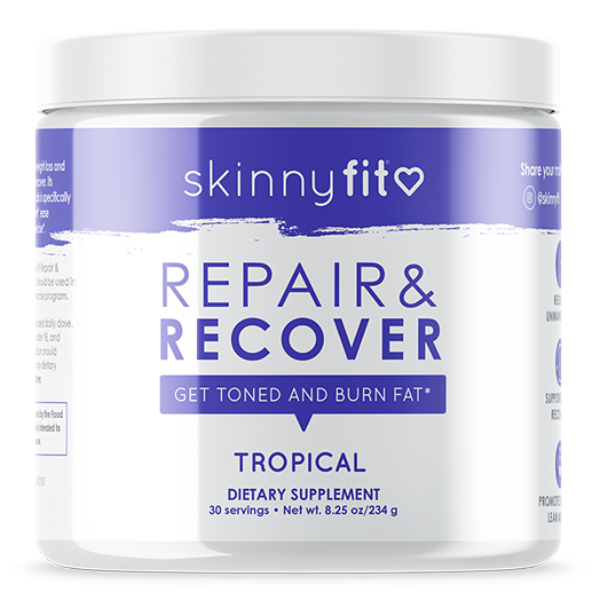When people first start working out, or have been working out for a long period of time with a specific goal in mind, it may not even cross their mind that they can physically exhaust their body. I’m not talking about tiring out because you worked your butt off. I’m talking about actually overtraining the body.
Humans are results-driven. We want to reap the benefits of whatever it is we’re putting effort into. Naturally, we believe and understand that the more effort we exert, the faster we’ll (most likely) get the results we want. But when it comes to physical demands, we need to be more sensitive to the fact that our bodies need to recover!
In today’s blog we’ll be going over everything there is to know about overtraining the body. I’ll share what some signs of overtraining are, and even overtraining symptoms to look out for. I want to help you understand how to avoid or repair overtraining so that you can keep your body healthy, and keep your results comin’!

Article At A Glance
What Is Overtraining?
You don’t have to be a competitive weightlifter or professional gymnast to be at risk for overdoing it in the gym. It can happen to anyone. Overtraining, sometimes referred to as overtraining syndrome, is the result of someone exercising to the point where the body does not have time to recover. In other words, the work performed starts to exceed the rest required in order to continue seeing results. That’s right, overtraining may lead to decreased performance, and a halt or a reversal in results.
This is never a favorable side effect of working out. You’re working hard for a reason! To give it some context, think about when you’ve ever been burnt out from work, family, or kids. You naturally do what’s best for you and your mental health. You take a break! Whether it’s taking a vacation, going out for a girls’ night, or getting a babysitter a few nights a week, you know how to care for yourself when you need some space. The same thing goes for exercising—we need to give our workouts a rest day, too. It’s just not always a natural realization when we’re so set on reaching a goal.
Signs Of Overtraining
Simply being tired after a workout isn’t necessarily one of the signs of overtraining. Similarly, overtraining symptoms are not just physical, either. Overtraining affects our mental and emotional health, our immune, nervous and cardiovascular systems, and even our hormones. [1]
If you start to notice more recurring injuries from working out, or abnormal or lowered appetite, even a big change in your period frequency or routine, you may be starting to feel the signs of overtraining.
Overtraining symptoms
Some signs of overtraining are, but are not limited to [2]:
- Muscle/joint tenderness
- Tiredness
- Tightness
- Decreased performance
- Increased rate of overuse injuries
- Insomnia/disturbed sleep patterns
- Nausea
- Decreased appetite
- Elevated heart rate and blood pressure
- Changes in menstrual patterns
- Decreased coordination
- Decreased strength

How To Recover From Overtraining
While overtraining is a serious matter, it’s something that can easily be fixed or avoided! I’m not advising that you stop training altogether, just start to pay attention to how you feel (in all senses!) after a prolonged period of time training in the gym, or even at home.
To supplement your workout, and to help avoid the signs of overtraining, here are a few tips and tricks to stay healthy while also staying on top of your fitness routine.
1. Get plenty of sleep
When it comes to training, sleep should be a number one priority because it is the time that our body needs to rest and digest, meaning, it’s in recovery mode! When we skimp on sleep or recovery, we increase our risk of experiencing some of the signs of overtraining, such as disturbed sleep patterns.
Growing up, I always hated sleeping. It wasn’t “cool.” Now? If I don’t get my pitch black 8 hours of sleep, I am one cranky lady. Seriously, though, sleep is so important. When we’re not in sync with our natural circadian rhythm, we’re at risk for a number of side effects, such as various chronic health issues, including sleep disorders, obesity, diabetes, depression, bipolar disorder, and more. [1] Those are a few possible outcomes if we aren’t properly sleeping. But if we are sleeping well, we put ourselves in a beautiful position. Proper sleep can help with anti-aging and decrease wrinkles, firms skin, and even boosts self-esteem! [3] They don’t call it beauty sleep for nothing!
2. Hydrate
A great training practice, and another key for anti-aging, is hydration! Yup, all your P.E. teachers, zumba instructors, and mothers were right. Drink lots of water! When we’re properly hydrated, our bodies can function (and look!) their best. Drinking plenty of fluids during exercise is particularly important because when we sweat, we’re losing fluids. We want to make sure we’re replenishing and providing our body with more fluids than it’s losing. What this boils down to is that a lack of hydration can greatly impact performance. [4] This is because fluids help do a number of things while we’re active. They help regulate our blood pressure, our overall body temperature, and help to ensure our muscles are all receiving the right amount of nutrients in order to function. [5]
3. Take a rest day
Ah, the beloved rest day! Generally, people reserve one or two days a week for a rest day regardless of the workouts they’re doing. Sometimes it’s Sunday for church, or Saturdays for BBQs. However, if you’re serious about training and achieving the results you’re after, it may be time to dig a little deeper into the meaning of and technicalities of rest days.
If you’re doing a lot of ground weight training (such as deadlifts, squats, and overhead presses), then you may need closer to two rest days for every three days of training. If you’re working smaller muscles (such as triceps and biceps) then one day for every four days may suffice. [6] Figuring out rest days are also a great way to work on your intuition. After each day of training, assess how hard you worked and how your body physically feels. Is it energized or drained?
Rest days aren’t just for recovery, either. They’re a great way to stay motivated and excited about working out. If you ever feel like you’re hitting a plateau, it may be the perfect time for rest. And not just a rest day or two, but even a week or so can help reignite that fire that pumped you up in the first place! Taking some time off gives your body the time and space it needs to recover and come back more ready than ever!
4. Take BCAAs
Commonly known as post-workout or recovery supplements, branched chain amino acids (BCAAs) are a MUST for anyone who wants to avoid overtraining or overtraining symptoms. BCAAs help to replenish our muscles with all of the essential amino acids that are lost and broken down during exercise. I like to think of BCAAs as little worker bees that go in and repair all the microdamage that our muscles undergo during training.
While BCAAs are easy to come by, not all post-workout supplements are created equally! I personally swear by Repair & Recover. It’s only 35 calories and has no added sugar. Most supplements I’ve researched are packed with unnecessary additives like sugar, dyes, and unnatural ingredients. Yuck.
Repair & Recover is my favorite because it’s not only a clean product, but it’s the best at easing soreness, in my experience. This is a great supplement for anyone, but especially if you train hard and want to make sure you’re properly repairing your body post-workout.
BCAAs benefit anyone who wants to:
- Ease soreness
- Promote muscle repair
- Support weight loss
- Reduce exercise fatigue
Mentioned In This Post
Repair & Recover BCAA
Maximize your recovery with our unique combination of BCAAs (Branched Chain Amino Acids) that promotes muscle repair, eases soreness, and supports weight loss after exercise!

5. Consider cross-training
Cross-training is the use of a variety of training styles and programs to improve overall fitness. It can mean doing a combination of HIIT, yoga, running, weight training, swimming, and more. Of course, you don’t have to do everything under the sun to cross-train. You can simply rotate between 3-4 styles of workouts and reap all of the same benefits!
Cross-training is great for increasing strength and agility, boosting weight loss, and even reducing injury. [7] The idea behind it is that if you can train your body to be coordinated in a wide range of movements, then you’re essentially keeping your body on its toes (no pun intended) and it won’t get caught in a routine, or plateau as easily. This contributes to avoiding overtraining by constantly using different muscle groups.
The Bottom Line On Overtraining
What overtraining boils down to is how you care for yourself and your body. Exercising shouldn’t only be about physical results. Make sure you’re doing workouts that you genuinely enjoy and make you happy. Take rest days when you need them, fuel your body with whole foods and proper hydration, and remember not to take it all too seriously. Learn to listen to your body, and it will tell you what it needs!